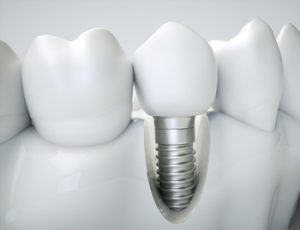Dental implants have become a well-known and effective solution for replacing missing teeth, offering aesthetic and functional merits. Many people are drawn to the idea of seeking a cheap overseas dental implants’ cost. India, specifically, stands out for its cost of dental implants, which is often lower than Australia’s.
However, several key factors must be considered when comparing the cost of dental implants in India to the costs in Australia.
This article will comprehensively compare the costs, procedures, and regulations and help you understand why the quality and safety of dental implant treatments in Australia can be worth the investment.
What Are Dental Implants?
Dental implants are artificial roots that get positioned into the mandible through surgery. They are usually composed of titanium. They offer a strong basis for dental crowns and dentures supported by implants, which are replacement teeth intended to resemble real teeth in terms of appearance, feel, and functionality.
Dental implant treatments have altered the way that missing teeth are handled, providing a long-term way to enhance oral health and overall quality of life.
The Allure Of Affordable Dental Implant Cost In India

While receiving dental implant treatments in India may seem appealing due to these significant cost savings, it’s important to consider the potential risks and differences in regulatory standards between India and Australia.
Why Is Dental Implant Procedure In Australia More Expensive?
When considering dental implants, one of the first questions that often arises is why the costs in Australia are significantly higher than those in countries like India. Understanding the underlying factors can provide clarity and help patients appreciate the value of investing in quality care. Here are several reasons why dental implant costs in Australia tend to be higher:
Strict Regulatory Standards
One of the most significant factors contributing to the cost difference is the stringent regulatory framework established by AHPRA. Australian dental clinics must adhere to high safety and quality standards. This includes:
Infection Control Measures
Clinics must follow strict protocols to ensure a sterile environment and minimise the risk of post-operative infections. This often involves using specialised equipment and materials that meet Australian health standards.
Approved Materials And Techniques
Only materials thoroughly tested and approved for use in dental procedures can be employed. This helps ensure patient safety and the longevity of the implants.
These regulations ensure that patients receive top-tier care, contributing to higher costs.
Highly Trained Professionals
In Australia, dental professionals must complete rigorous educational programmes and extensive training before practising.
Australian dentists are required to complete continuing education courses regularly to remain licenced. This commitment to continued learning helps them stay in the loop on the most recent advancements in dental implant technology and techniques.
This extensive training allows patients to feel confident that they are being treated by highly skilled professionals who prioritise their comfort and well-being.
Advanced Technology And Materials
Another factor driving up the cost of dental implants in Australia is the use of advanced technology and premium materials. Australian dental clinics often invest in the following:
State-Of-The-Art Equipment
Many Australian clinics are equipped with the latest technology, such as 3D imaging and computer-guided implant placement systems, which enhance the accuracy and usefulness of procedures.
High-Quality Materials
Titanium implants, for instance, are known for their durability and biocompatibility, meaning they integrate well with the body and can last for many years. The use of high-quality materials ensures that patients obtain implants that are equally functional and visually acceptable.
Investing in technology and materials directly correlates with the higher costs associated with dental procedures in Australia.
Post-Operative Care And Follow-Up
Australia’s commitment to patient care goes well beyond the initial procedure. After receiving dental implants, patients benefit from comprehensive post-operative care, which includes:
Follow-Up Appointments
These visits allow the dentist to observe the healing phase and ensure that the implant integrates correctly with the jawbone.
Patient Support
Clinics often offer resources and support for patients during their recovery, helping them manage any discomfort or complications that may arise.
This focus on ongoing care is crucial for the long-term success of dental implants, but it also adds to the overall cost of treatment.
Customised Treatment Plans
Lastly, Australian dentists strongly emphasise creating customised treatment plans tailored to each patient’s unique needs and circumstances. This personalised approach involves:
Thorough Assessments
Before any procedure, patients undergo comprehensive examinations, including diagnostic imaging, to evaluate their oral health and determine the best course of action.
Individualised Treatment Strategies
Each patient’s treatment plan is developed based on their specific dental needs, ensuring that the implants function optimally and enhance their overall appearance. For example, one patient may need bone grafting while another may not.
While this personalised approach may require additional time and resources, it ultimately results in better outcomes and greater patient satisfaction.
The Benefits Of High-Quality Dental Implants
While cheap dental implants may seem like a good option at first glance, investing in high-quality implants from a reputable clinic in Australia offers several benefits:
Longevity And Durability

Improved Aesthetics
Dental professionals in Australia are skilled in creating natural-looking replacement teeth that blend seamlessly with your existing teeth. This can have a positive impact on your confidence and appearance.
Better Oral Health
Dental implants beautify the look of your smile and contribute to better overall oral health. By replacing missing teeth, implants help prevent bone loss, save the structure of your jaw, and support surrounding teeth.
Comprehensive Post-Operative Care
In Australia, you’ll receive comprehensive post-operative care that includes follow-up appointments, detailed recovery plans, and ongoing support to ensure the success of your implants.
Types Of Dental Implants
There are multiple types of implants available on the market, depending on your specific dental needs and the number of teeth that need to be replaced:
Single-Tooth Implants
This is the most common type of dental implant and is used to replace a single missing tooth. A single-tooth implant consists of a titanium implant, an abutment, and a dental crown. They not only restore functionality, allowing you to eat and speak with confidence, but they also keep the jawbone healthy by avoiding bone loss caused by missing teeth.
Multiple Implants
Multiple implants may be required for individuals missing several teeth. This option is ideal for those seeking a permanent solution to replace several missing teeth in one mouth area. Multiple implants involve the placement of two or more titanium implants into the jawbone, which can support individual crowns or a dental bridge that connects multiple crowns. This approach improves stability and function, creating a natural and cohesive smile.
Full-Arch Implants
Full-arch implants, also known as full-mouth implants, offer a solution for individuals who have lost most or all of their teeth in one or both arches. This treatment involves placing four strategically positioned implants in the jawbone to back up a full arch of prosthetic teeth. Full-mouth dental implants cost more because they provide a permanent solution that enhances comfort and confidence, allowing patients to consume their favourite foods without worrying about their prosthetic teeth shifting.
Risks Linked With Dental Implants’ Cost: India Vs. Australia
While the cheaper dental implants in India may be enticing, weighing the potential risks involved in undergoing a surgical or invasive procedure abroad is essential. Here are some critical factors to consider:
Infection
One of the major concerns with dental tourism is the risk of infection. The standards of sterilisation and infection control practices can vary significantly between countries and clinics.
In some cases, these protocols may not be as stringent as those required by regulatory bodies in Australia, increasing the likelihood of post-operative infections. Infections can lead to complications, extended recovery times, and additional treatments, which may ultimately negate any initial cost savings.
Implant Failure
The success of dental implants is heavily influenced by the quality of the materials used and the skill of the dental professional performing the procedure. In some overseas clinics, the materials might not meet the high standards found in Australia, and the dental professional’s experience may be less than ideal.
Poorly placed implants or subpar materials can eventually lead to implant failure or complications, resulting in the need for corrective surgeries or replacements that can be both costly and time-consuming.
Lack Of Follow-Up Care
Another significant consideration is the challenge of receiving necessary follow-up care after returning to Australia. Follow-up dental appointments are crucial for overseeing the success of your dental implants and handling any potential complications that may arise.
If you encounter issues after receiving treatment abroad, you may face difficulties accessing appropriate care, especially if the clinic you visited is far away or requires additional procedures. This lack of continuity in care can lead to delays in addressing problems, potentially compromising the success of your dental implants.
Language Barriers
Effective communication with your dental provider is vital for understanding your treatment plan, addressing concerns, and following post-operative care instructions.
Language barriers can complicate this process, making conveying important information or asking questions about your treatment more challenging. Miscommunication may lead to misunderstandings about aftercare, resulting in inadequate support and increased anxiety during recovery.
Additional Considerations
In addition to these risks, it’s essential to consider the overall experience of seeking dental implants overseas. Navigating unfamiliar healthcare systems can be daunting, and you may encounter unexpected challenges, such as travel logistics, cultural differences, and varying levels of comfort with the local healthcare practices.
Moreover, travel stress can impact your recovery, particularly if you have just undergone surgery.
Frequently Asked Questions (FAQs)
Are there financing options for dental implants?
Many Australian dental practices offer payment plans or financing options to help patients access affordable dental implants without adding unnecessary risks.
Can anyone get dental implant therapy?
Most adults with missing teeth are great candidates for dental implants, provided they have healthy gums and enough bone density to work off of. However, certain medical conditions and lifestyle factors, such as smoking, may affect candidature. A thorough evaluation by a dental expert is necessary to determine suitability.
What is the typical recovery timeframe for dental implant surgery?
The recovery time for dental implant surgery depends on the complexity of the procedure. Most patients can expect to recover within a few weeks, but it can take several months for the implant to integrate entirely with the jawbone.
What are mini dental implants?
Mini dental implants are the smaller version of traditional dental implants, typically used when there is insufficient bone density or space for a standard implant. Mini dental implants are often less invasive to place, may require a shorter healing time, and can be a more affordable option for some patients.
The Bottom Line For Dental Implants’ Cost: India And Australia

If you want dental implants and are ready to explore your options further, we’re here to help! Our experienced dental professionals in Winston Hills are committed to providing you with high-quality dental care tailored to your unique needs.
Contact Infinity Dental Care today at (02) 9159 6237 to let us guide you on your journey to a healthier, more confident smile. Your new smile is just a call away!
Note: Any surgical or invasive procedure carries risks. Before proceeding, you should seek a second opinion from an appropriately qualified health practitioner.
Sources:
Veronika. Types of Dental Implants & How They Work [Internet]. NewMouth. 2024 [cited 2024 Oct 7]. Available from: https://www.newmouth.com/dentistry/restorative/implants/
Seladi-Schulman J. Are Dental Implants Permanent? [Internet]. Healthline. 2021 [cited 2024 Oct 7]. Available from: https://www.healthline.com/health/dental-and-oral-health/how-long-do-dental-implants-last
Healthdirect. Dental Implant Procedure [Internet]. Healthdirect. 2023 [cited 2024 Oct 7]. Available from: https://www.healthdirect.gov.au/dental-implant
Policies, Codes, Guidelines and FAQ [Internet]. Dental Board AHPRA. 2022 [cited 2024 Oct 7]. Available from: https://www.dentalboard.gov.au/Codes-Guidelines.aspx
Felkai P P., Nakdimon I, Felkai T, Levin L, Zadik Y. Dental Tourism and the Risk of Barotrauma and Barodontalgia. British Dental Journal [Internet] 2023;234:115–7. Available from: https://www.nature.com/articles/s41415-023-5449-x
Dutta SR, Passi D, Singh P, Atri M, Mohan S, Sharma A. Risks and Complications Associated With Dental Implant Failure: Critical Update. National Journal of Maxillofacial Surgery [Internet] 2020;11:14. Available from: https://journals.lww.com/njms/fulltext/2020/11010/risks_and_complications_associated_with_dental.4.aspx

